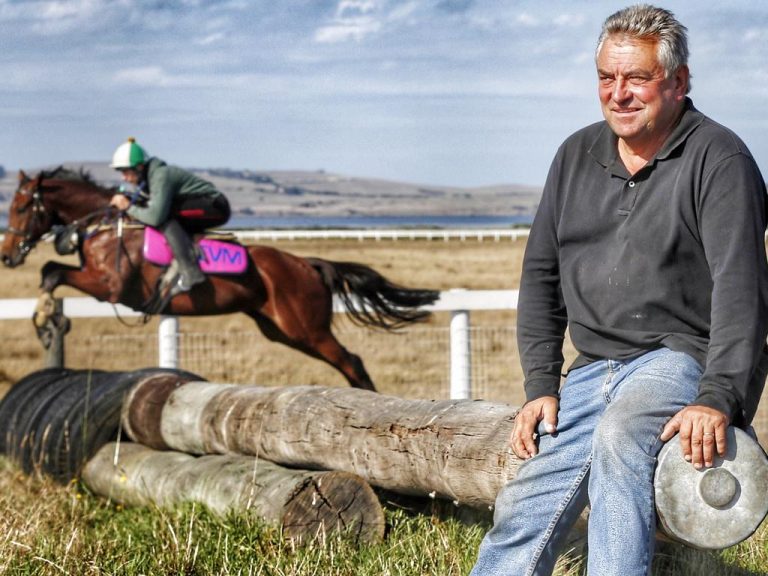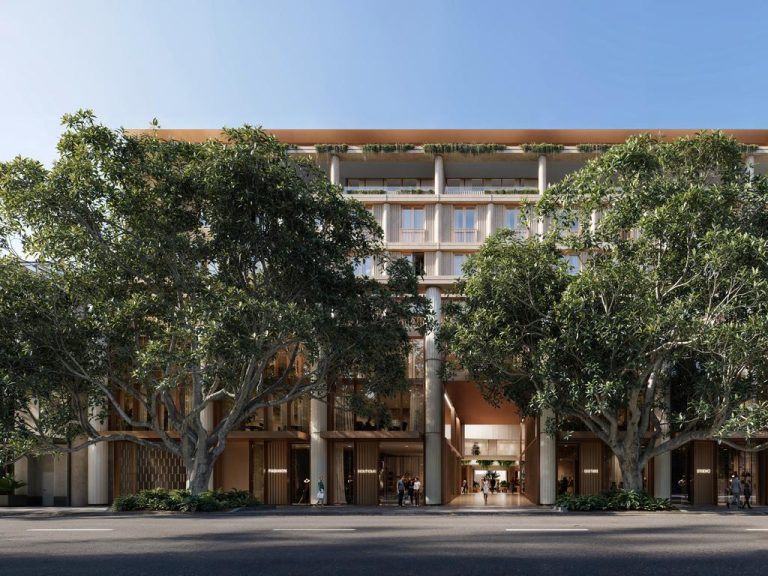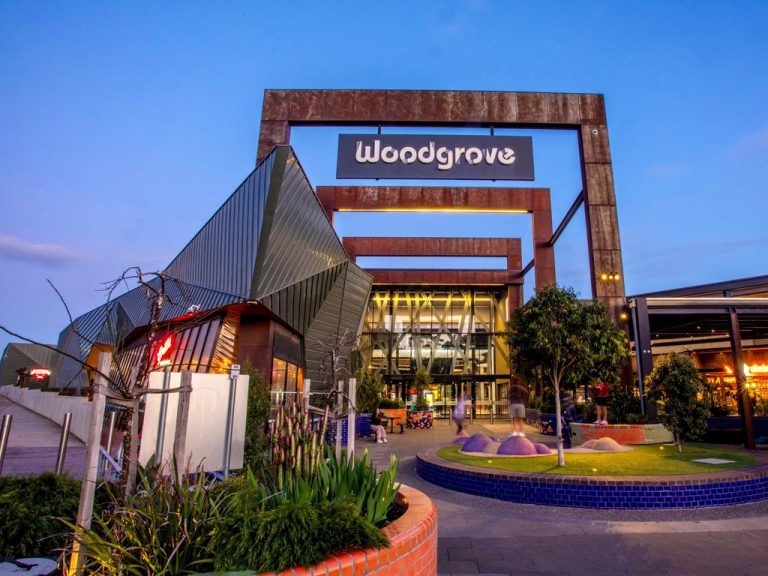Brookfield take the wide view as real estate heats up

Brookfield Place on George St, Sydney. Picture: Karl Schwerdtfeger
When Canadian asset manager Brookfield took over the famed Multiplex operation in 2007 few could have foreseen its impact on the Australian real estate landscape.
Since then it has continued the Multiplex legacy by adding office skyscrapers to Australia’s capitals, with recent completions including Brookfield Place Sydney above Wynyard station, 405 Bourke St in Melbourne, and new towers now rising in Perth.
But it has been the dramatic takeovers it has kept on executing, including hotel company Thakral, retirement operator Aveo and similar plays in the infrastructure field, that have really put Brookfield on the local map.
Brian Kingston, managing partner and chief executive of Brookfield’s Real Estate Group, makes it clear that there is plenty more to come in Australia as the company seeks to expand its $690bn global empire.
Kingston has a strong local pedigree, having led Brookfield‘s Australian business activities, including its local office unit and the Prime Infrastructure business, as well as being chief financial officer of Multiplex, before heading the property business.
The Brookfield veteran has led mergers around the globe and the company has three major privatisation deals on the go.
Kingston clearly sees the rebound from the coronavirus crisis as a time of opportunity, and in Australia that is translating into expanding into new fields, so the now office-dominated portfolio starts to resemble the more diversified global operations.
Kingston is “very encouraged” by the speed at which major cities are coming back to life.
“They’re at different stages of emerging but in general, everywhere in the world does seem to be coming through to the other side,” he says. London is leading, with New York also back as the focus shifts away from Covid back to the economy.
Kingston says cashed-up consumers are starting to spend after two years of forced savings and low unemployment, though he admits that inflation is a headwind.
“Along with inflation comes the spectre of higher interest rates,” he says. He dismisses the idea that the inflation spike is only temporary and says structural forces are also at play.
Kingston expects interest rates to move “modestly higher” and cautions that prices on some assets could be affected. “(Those) with very sharp cap rates that were predicated on very low interest rates, those cap rates may move up a little bit,” he says.

Brookfield Place on George Street, Sydney. Picture: Karl Schwerdtfeger
But he says with good economic growth – which landlords will capture through rental reversion – values will hold up.
“It’s a very favourable backdrop for real estate, which provides an implicit inflation hedge,” he says, with rising construction costs also supporting the value of existing assets.
Kingston says for its growth investing the company is chasing the tailwinds behind logistics assets, which are rising on the back of higher e-commerce. But he calls out the chronic housing shortage globally.
“Every year we’re not building enough homes to keep up with increased demand,” he says.
The company is already a major player in multi-family – known as build-to-rent locally – and has 50,000 apartments in the US.
Kingston says the play extends to a range of areas including single family rentals, manufactured housing, extended stay, hotels and student housing, where Brookfield is building a local business.
He sees opportunities in Australia as the traditional model of strata title apartment sales to small investors is superseded by large institutions as owners and operators.
“Here, the UK and Asia, in China, are probably specifically three markets that we’re looking at really building out our multi-family rental business,” he says.
“Development is an obvious place to look, given we’ve got the ability to create new product if it doesn’t exist,” Kingston says. But Brookfield won’t be limited.
“I think there’s opportunities for conversions and that could be conversions of office buildings or even hotels and other things,” he says. It could also see Brookfield buy existing assets or seek to manage them.
Already it is starting in student housing, where he sees a shortage of purpose-built student accommodation as international students return. “You’ve got massive demand and not a lot of supply. So I think that’s a really exciting space down here,” Kingston says.
But on the value front he still loves offices. Kingston argues that the protracted return-to-the-office debate is throwing up opportunities for the firm as some rivals sit still or pull back.
“As a contrarian investor, this is what we always look for: areas where there’s a shortage of capital, where you can bet your best opportunity is to find things that are mispriced,” he says.
Kingston acknowledges that some office buildings are going to be more challenged in a post-Covid work environment. Some are to be avoided but others could simply be bought at different prices.
He is a believer in top precincts like Brookfield Place Sydney, which opened fully leased with strong investment partners, after one of the most complex builds in Australia.
“This will be in more demand in the future than it has been in the past,” Kingston says. He says employers looking to bring staff back need a reason for them to return to offices.
“Increasingly, what they want are new products where they can deliver that type of experience to their employees in order to lure them back,” he says.
With top-class space being snapped up in New York, he says there may be a shortage of prime office buildings at a time when some investors are not buying and some assets are discounted. “It’s always a little more nuanced than just office bad, industrial good,” he says.
The platform is certainly alive to opportunities for even the biggest takeover deals.
“The thing we like about public to private is there’s an advertised price to look at every day,” he says. “And frankly, they’re complicated, very complicated to actually execute.
“It’s much more complicated to get to the point where you can privatise the entire company and still capture some of that discount. There’s not a lot of people who do that,” he says.
Hotel company Thakral once traded at a discount but held the jewel of the Wynyard development site. “Right from the start it was transit-oriented office development,” Kingston says.
Brookfield‘s development team is “very active” in evaluating new sites but is also on the look out for larger targets. “We are sort of agnostic, make versus buy,” Kingston says.
He is bullish on Australia, quipping that he wishes the business was five times its current size, although he admits there are limits.
Kingston says the global business has shifted beyond its traditional focus on offices.
“We’ve really diversified into a broad-based real estate company, so office now today in our global portfolio makes up about a third of our assets. And the other two-thirds is everything else,” he says.
“I foresee the same sort of thing happening here in Australia,” Kingston says. “
We’ve been investing in student housing, and we’re investing in industrial and logistics; multi-family is yet to come. We’ll continue to do things in office but there is huge potential growth in a number of these other asset classes,” he says.
Brookfield has the advantage of playing at a scale where few others can compete.
“Scale is a huge competitive advantage in that we hear about everything and people want to deal with us because if they feel like it’s something that we do look at, and when we get serious about it, they know we’re going to close,” Kingston says.
After 15 years it seems that Brookfield’s local empire is just getting started.







